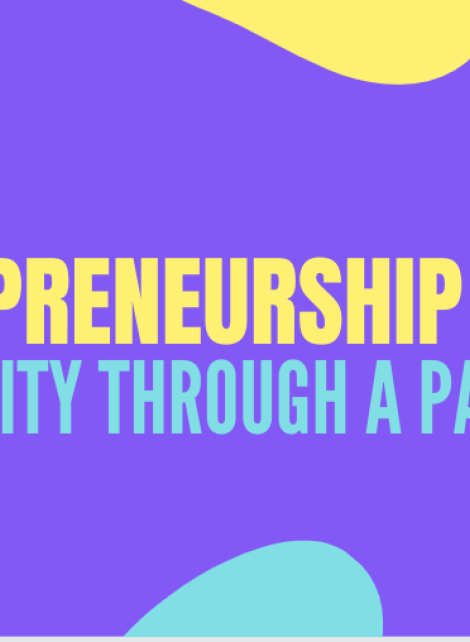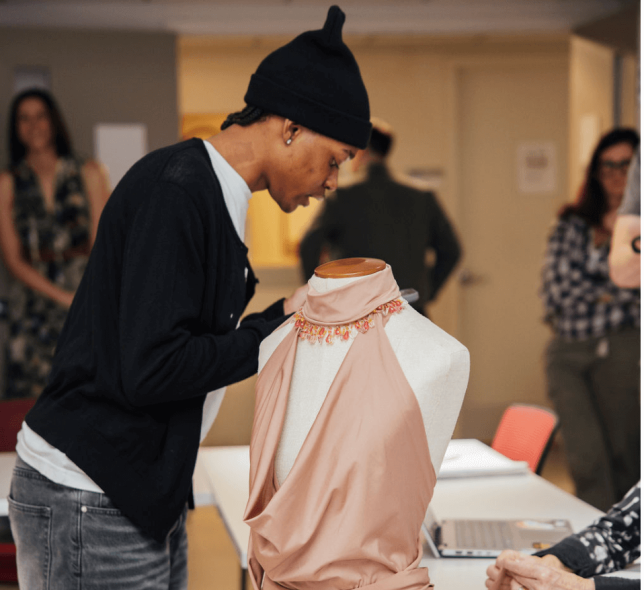The moderator was Bianca Caampued—an LIM alumna who co-founded Small Girls PR—and three of the panelists were also LIM alumni.
Erica Lavelanet is a digital content communicator and teacher who has created partnerships with some of the most well-known fashion and lifestyle brands. She is currently the owner of Baba, a food truck/catering company which serves plant-based food.
Megan Shekleton is a holistic business coach and the founder of MoxxieMade. She helps guide women to live their most expansive lives through creating purpose-driven careers and businesses.
Onikah Asamoa-Caesar is the founder and owner of Fulton Street Books & Coffee in Tulsa, Oklahoma, of which she says, “We center the stories, narratives, and lived experiences of BIPOC folks in this country and marginalized communities. Our mission at Fulton Street is about building intergenerational literacy and building community.”
LIM alums Baylen Edwards-Miller and Anthony Nota were also on the panel. Their business IHKWIP is a functional accessories brand that specializes in personal protective equipment. Baylen does the designs and merchandising, while Anthony does the PR, marketing, and social media.
Here are excerpts from the discussion:
Onikah: “The point of Fulton Street is to bring people together, to build community. And what a time to launch a business, to open a business, where the worst thing you can do for public health and safety is to bring people together. So we've struggled and wrestled with how we build community when we can't be together physically… I think it's forced us to think about what it means to be in a community outside of sharing physical space. We've done some pretty cool things on social media… I've had to learn just some new skill sets to adapt to what we're dealing with. The other thing that's been helpful is to listen to people, listen to a community deeply… really take a step back and hear what people are needing and wanting during this time. We had our mission, but the times are different, so now we have to adapt and see what is it that people want now. What is it people need now? How can we be a resource to our community at this time?”
Erica: “With everything that happened, we started thinking on this hyperlocal level. For us, that meant partnering with local youth organizations and groups. ….you launch a business and want it to be this massive success, but then you will not be serving the public, and for us, we thought, what can we do within this 10-mile radius? How can we be of service?... I'm from Queens and grew up in a food desert, but I did not even know that I grew up in a food desert until I was in my late 20s,.. It just dawned on me that there is work to be done literally at your doorstep, within our communities and family units.”
Baylen: “The fashion industry took a major hit at the beginning of this and some of biggest global brands who you may have thought could withstand anything suddenly reduced 75%, if not shuttered doors completely. Now when we're all rebuilding… it’s ultimately connected to the consumer on a new level…Now more than ever we all have a realization of how much things are interconnected in this world, and this country specifically. It's important for a brand to meet needs, but also be a conscious brand and make you be a conscious consumer, because you should know that brand you're putting your money toward is standing by your personal beliefs.”
Megan: “Having a core mission and purpose and then having your values built at the onset of your business is so vital, because as an entrepreneur, especially as an early entrepreneur, there are going to be so many decisions you have to make, and so many ways that you can evolve and take your business as it grows and expands... and it's having a NorthStar to help you filter through those decisions.”



